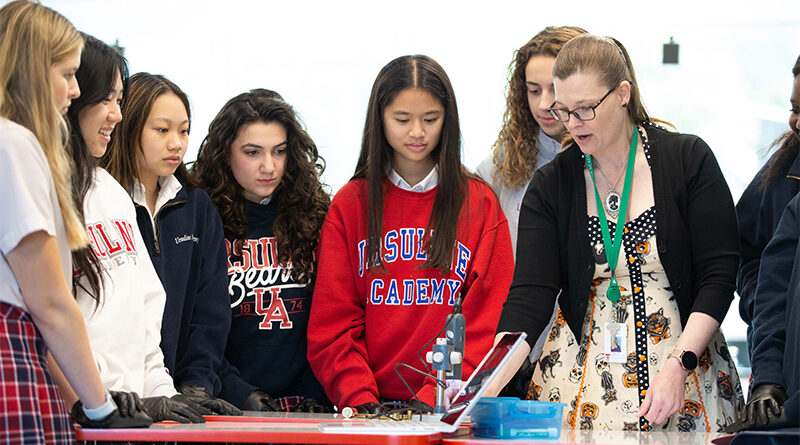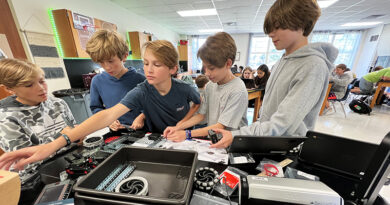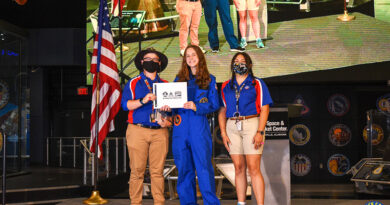CSI: Ursuline Academy
Students become detectives in Kirsten Lindsay-Hudak’s forensics class
Ursuline Academy is turning students into detectives.
The yearlong forensics class, reserved for seniors, combines physics, chemistry, and biology in a simulated work experience where students learn skills and techniques used in modern forensic labs.
“I really enjoy being able to provide the students an experience in science where they can see what they’re learning in school is applied in the real world,” forensics teacher Kirsten Lindsay-Hudak said.
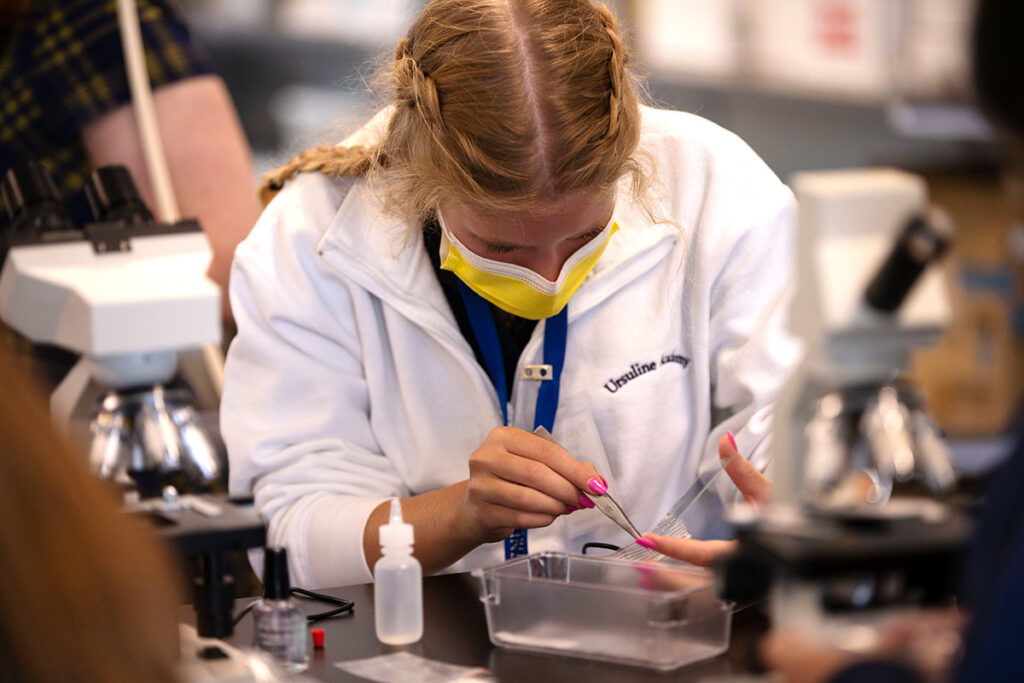
Students apply to work for the Ursuline Academy Criminal Investigation Division and investigate, analyze evidence, and review cases during a training academy that runs through Thanksgiving.
After passing a certification exam, students receive a special investigator badge, get assigned a partner, and work assigned cases.
“Each detective pair gets a unique case that includes a police report, witness statements, and [an] evidence packet [with] actual physical evidence,” Lindsay-Hudak said. “[Students] will interview all of the people involved in the case, and they will develop the narrative for how the crime occurred.”
Students submit their analysis as a court summary, or testimony, for when they take the stand as an expert witness in a mock trial case, which takes the place of their final assessment.
Sometimes, Lindsay-Hudak said, students solve crimes among Ursuline faculty members.
“A faculty staff case [is] where we have little, minor crimes faculty pretend to have committed, and [students] will figure out which faculty member [is] guilty,” she said. “They interview them [and] they collect fingerprints. Then, they have to match it, and whoever they think is guilty, they get to deliver an arrest warrant to.”
Students also participate in labs, take notes, complete homework, and attend “conferences and workshops” such as a recent one Lindsay-Hudak led on interviewing techniques.
“It’s a technology-enhanced, active learning environment,” she said. “Everything we do is basically digital. [Students are] using their phones to photograph evidence, we have digital microscopes, and we can use different programs to analyze things.”
Piper Rutherford hopes to become a prosecutor.
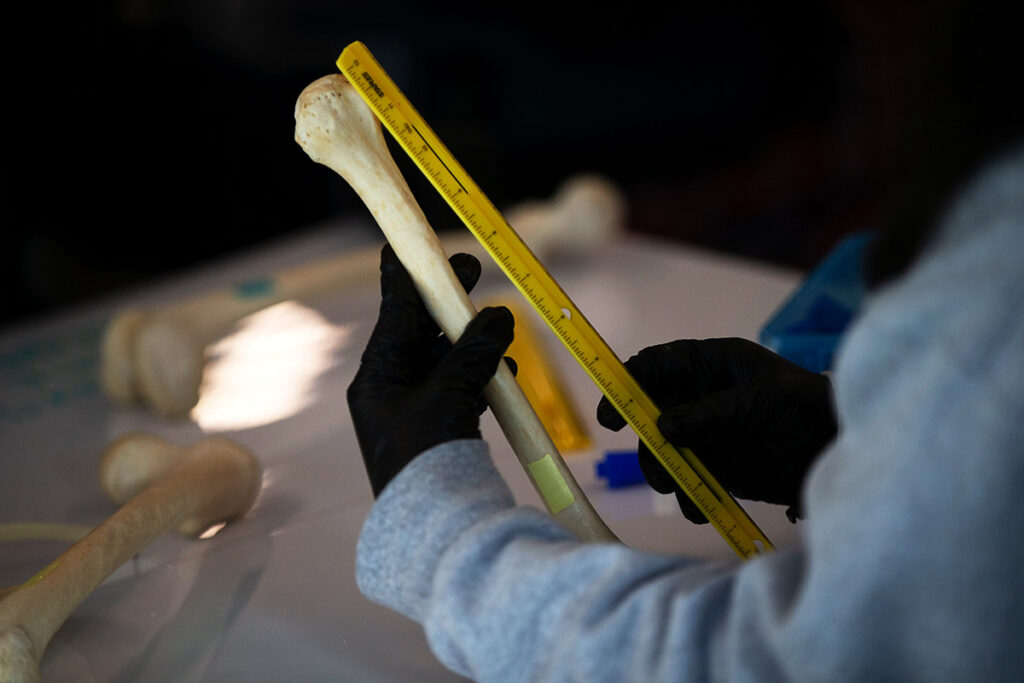
“I just wanted to learn more about the inner workings of investigating and analyzing evidence and a crime scene,” she said. “Also, just growing up, I’ve always loved watching shows like 20/20, Dateline NBC, and even some of the cliches like Dexter.”
Rutherford said her favorite parts included a blood module, where students did blood typing, and examining fibers such as hair under a microscope to determine from which species it came.
Rutherford recommends the class for those who enjoy freedom and an element of accountability. “I think that if you’re someone who wants a hands-on experience that includes everything you’ve learned in science [throughout] high school, such as physics, biology, and chemistry, it’s all applied in forensics.”

